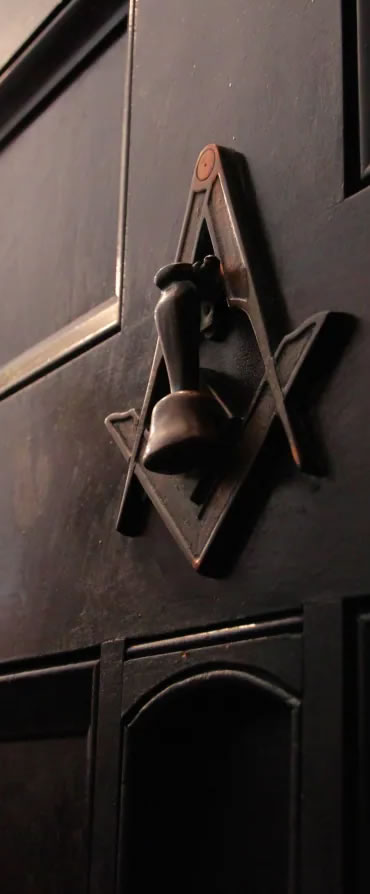Freemasonry and Secrecy
Completion requirements
 People sometimes refer to Freemasonry as being a "Secret Society." In one sense the statement is true. Any social group or private business is "secret" in the sense that its business meetings may be open only to its members. In Freemasonry, the process of joining is also a private matter, and its members are pledged not to discuss with non-members certain parts of the ceremonies associated with the organization.
People sometimes refer to Freemasonry as being a "Secret Society." In one sense the statement is true. Any social group or private business is "secret" in the sense that its business meetings may be open only to its members. In Freemasonry, the process of joining is also a private matter, and its members are pledged not to discuss with non-members certain parts of the ceremonies associated with the organization.Freemasonry does have certain handshakes and passwords, customs incorporated into later fraternities, which are kept private. They are means of recognizing each other--necessary in an organization which spans the entire world and which encompasses many languages.
The tradition of using handshakes and passwords was very common in the Middle Ages, when the ability to identify oneself as belonging to a building or trade guild often made the difference in getting a job or in obtaining help for yourself and family. Today, Freemasons make the same pledge to every member that he will be offered assistance if he, or his family, ever requests it.
Freemasonry can’t be called a "secret society" in a literal sense. A truly secret society forbids its members to disclose that they belong to the organization, or that it even exists. Much of the Masonic ritual is in books called "Monitors" that are widely available, even in public libraries. Most Freemasons wear rings and lapel pins which clearly identify them as members of the fraternity. Masonic lodges are listed in public phone books, Masonic buildings are clearly marked, and in many areas of the country Masonic lodges place signs on the roads leading into town, along with civic organizations, showing the time and place of meetings.
In terms of what it does, what it teaches, who belongs, where it meets, there are no secrets in Freemasonry! It is a private fraternal association of men who contribute much toward the public good, while enjoying the benefits of the brotherhood of a fraternity.